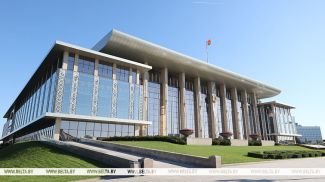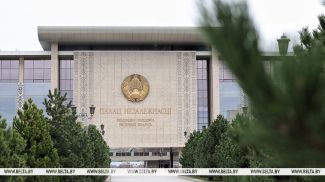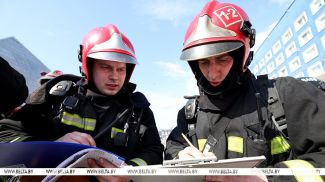MINSK, 9 March (BelTA) – Belarus has a lot of proposals for oil supplies and processing, Belarus President Aleksandr Lukashenko said as he met with Chairman of the Belarusian state petrochemical concern Belneftekhim Andrei Rybakov and Vice Premier Yuri Nazarov on 7 March, BelTA has learned.
“The topic of today's conversation, as you know, is the supply of hydrocarbons, primarily oil, to Belarus. I have received a number of proposals for the supply of oil and processing in Belarus. There are many such proposals at present, thanks God. I would like to coordinate some issues with you and ask for your advice on what is the best option for us (whether to buy this oil or not) and what is more economically profitable for us,” said the head of state.
“I think that we will find the right solution. I have asked you to come at the weekend because the issue is urgent. We have to make a decision and buy this oil on Monday-Tuesday. The volumes are large - over 6 million tonnes,” Aleksandr Lukashenko added.
On 3 March Aleksandr Lukashenko held a meeting to discuss ways to streamline the operation of the oil processing industry in Belarus in 2020 and in the future.
He said then that certain states realized that with the help of an oil pipeline valve they can solve issues of interest in a much easier way. Unfortunately, in spite of any mutual obligations, such practices are also used in relation to Belarus. The domestic fuel market and the operation of chemical and other enterprises depend on hydrocarbon raw materials. “We became fixated on several suppliers for no reason and do not have alternative sources of raw materials. Oil is not an exclusive product. There are enough people who are willing to work with us even in Russia. We need to find suppliers and come an agreement with them. This is number one priority, especially amid this complicated situation in the world, including with our monopolist partner,” Aleksandr Lukashenko said.
The head of state stressed that hard work is also needed in respect to import logistics. The matter requires not only oil transportation agreements, but also comprehensive and systematic infrastructure decisions. It is necessary to mull over the possibility to implement joint projects with foreign owners of raw materials.













